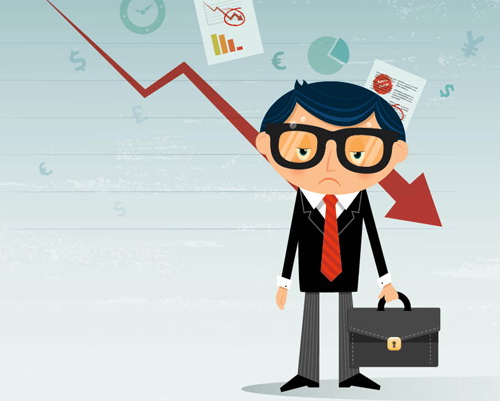|

According to a recent report issued by the China Sub-health Academic Seminar, over 70 percent of Chinese people suffer from chronic fatigue syndrome. Chronic fatigue, also called "sub-health" in China, is a grey period between being in state of health and disease. The condition manifests itself in a variety of ways: bodily fatigue, pain, dizziness, headaches, lack of appetite, insomnia and other sleep disorders, depression, anxiety and mood swings. In big cities, work and social pressures are major determinants of whether a person develops the syndrome. Jonathan Gandari, a medical education coordinator at the College of Health Sciences at the University of Zimbabwe, and Dr. Tang Wei, who works at the Shanghai Academy of Social Sciences, share their views on chronic fatigue.
No Health Without Mental Health
by Jonathan Gandari
Working at a teaching hospital has made me realize that I'm not alone in being affected by chronic fatigue in Zimbabwe. I sit in front of a computer for long hours, often with little or no rest during the day or exercise. Deadlines make it even harder to schedule much-needed breaks from work.
Last March, after running a one-week workshop, I was burned out. My exhaustion turned into anxiety. I started developing headaches and fatigue. I feared how my thinking and emotional state would be affected. In my culture, most individuals experiencing chronic fatigue attribute their symptoms to "thinking too much," or to a supernatural cause or social stressors.
But working in a hospital environment made it easy for me to approach doctors about my problem. The doctors who diagnosed me with chronic fatigue explained that it's common in Zimbabwe. Many people working in the capital, Harare, come to the hospital with symptoms related to anxiety, depression and panic.
My hospital visits for chronic fatigue forced me to ask more questions. I found out that, among adults, up to 40 percent of chronic fatigue sufferers still experience symptoms a year after consulting hospital physicians. In one month, it's estimated that depressive and anxiety disorders affect 15.7 percent of women in urban areas.
A study by Dr. Melaine Abas, a visiting lecturer at the Department of Psychiatry at the University of Zimbabwe, indicates that unlike men whose chronic fatigue is work- and money-related, for women the culprits are marital or other relationship crises, deaths, and infertility or unwanted pregnancy.
In Zimbabwe, few consult mental health professionals. Primary care physicians are usually seen first, but patients move on to traditional healthcare providers as their fatigue becomes chronic. Their perceptions of the illness and financial costs are key in this decision-making process. Their healthcare providers typically prescribe vague treatments for the condition, such as painkillers, vitamins or hypnotics.
The symptoms of chronic fatigue may be fairly universal. According to Abas, similar findings in other developing countries suggest a vicious cycle of poverty, depression, illness, disability, increased health costs, inadequate care and further impoverishment as key causes of chronic fatigue. She notes that preventive strategies for chronic fatigue should include policies aimed at increasing gender and sex equality, eliminating poverty and strengthening social support networks for all working people, both blue and white collar.
For myself, I've decided to run and play to avoid chronic fatigue. Swimming is especially relaxing.
Sub-health Driven by Self-interest
by Tang Wei
With so many people suffering from sub-health, it's becoming harder to say that the condition is a matter of work-life balance. While it's more prevalent among city dwellers than those living in China's towns and villages, urban competition is not the sole culprit. What's the deeper cause? I think self-interest may be the driving factor.
Since the 1970s, people's social lives have expanded dramatically. Everything has become monetized, and everyone is trying to achieve the fullest utilization of his or her "capital." The most capable competitors – people like Apple co-founder Steve Jobs or Facebook CEO Mark Zuckerberg – are rewarded with large returns on personal investment.
In big cities, those who want to maximize the return on one's "capital" must keep working and studying to win more opportunities. Prolonged working hours and high-pressure environments become a necessity. Many workers lose their ability to rest effectively.
My most stressful days date back to 2010 when I worked for the Shanghai World Expo during its preparations period. I was swamped preparing documents and attending meetings, and burned the midnight oil until two or three in the morning trying to meet all my deadlines. Due to the lack of sleep and heavy workload, I often felt tired and found it difficult to recover even after resting.
After the Expo, my life reverted back to my normal academic one, which involved thinking long and hard, and to write papers. Living my life at a desk left my body and mind again overstrained.
I think for people in intellect-heavy professions, especially academics, it's necessary to leave the room and take up more outdoor activities such as swimming, jogging or mountain climbing. Watching movies can help, too. The important thing is to completely relax the body and mind.
Many intellectuals expect too much from themselves. But because salaries, holidays and other time off are inadequate, unsatisfactory or completely disregarded, those working in creative and academic fields end up working overtime and under sub-par health conditions.
China is in a period of rapid urbanization and industrialization. Its human capital is in an equally rapid process of multiplication. This situation requires a large amount of highly effective people to deal with tasks, and it may seem totally normal to overwork and always be busy. But in this environment, individuals are powerless. The only choice, perhaps, is to try to take that personal power back and to actively take care of oneself. |